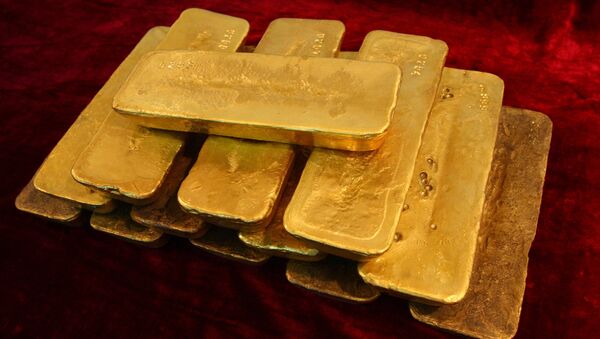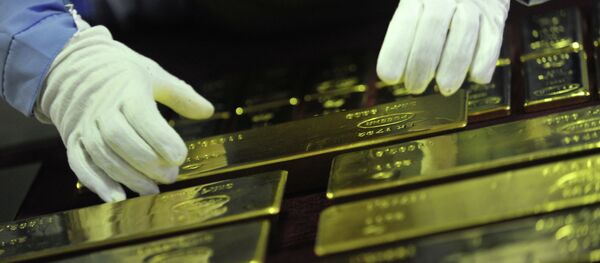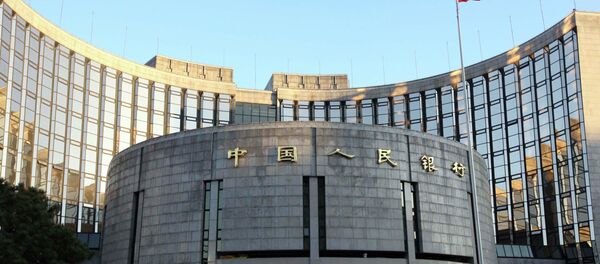A drop in global gold prices was advantageous for China, the world’ biggest importer of gold bars, gold investment coins and refined gold.
At the same time, by the end of 2016 gold prices were on the rise, with an ounce adding nearly six percent in dollar equivalence. In mid-2016, bullion prices jumped by 25 percent and higher. Then, gold dropped, but the dollar-denominated yield of gold is still higher than that of dollar deposits in banks.
Thus, China found itself in a two-dimensional situation. On the one hand, Chinese gold buyers can now easily enter the global market due to the decrease in prices. On the other hand, gold holders, including the People’s Bank of China and private customers, can take advantage of the slow recovery in the prices.
"Those restrictions alongside a currency reform in India resulted in a drop in global gold prices. They dropped below $1,200 per an ounce and settled at $1,130. At the same time, what Beijing is doing is not an official financial policy. The measure is applied on a case by case basis. It seems that Chinese authorities want to analyze the impact of those quotas on capital outflows," Vyazovsky told Sputnik Chinese.
However, the expert suggested that Beijing is likely to ease or lift the restrictions in 2017.
"The Chinese government eyes a global gold trading center in the country. Moreover, the Shanghai Gold Exchange is ramping up. So, any administrative restrictions would have a negative impact on those plans," he pointed out.
In May, China’s ICBC Standard Bank bought a 2,000-ton gold vault from Barclays, taking on the London Metal Exchange.
The deal delivered a "vote of confidence in the depth and strength of London, the world’s international gold market," Ruth Crowell, the head of the London Bullion Market Association (LBMA), told The Financial Times.
As a result, China’s reputation in the global bullion market has significantly increased, according to Vyazovsky.
"In recent years, China has been increasing imports of the yellow metal. Beijing also plans to establish an international gold trading center in Shanghai. This is why establishing the Shanghai Gold Fix was logical. Moreover, it is aimed to increase transparency in the market. In the long-run, China is likely to begin exporting gold," the expert said.





